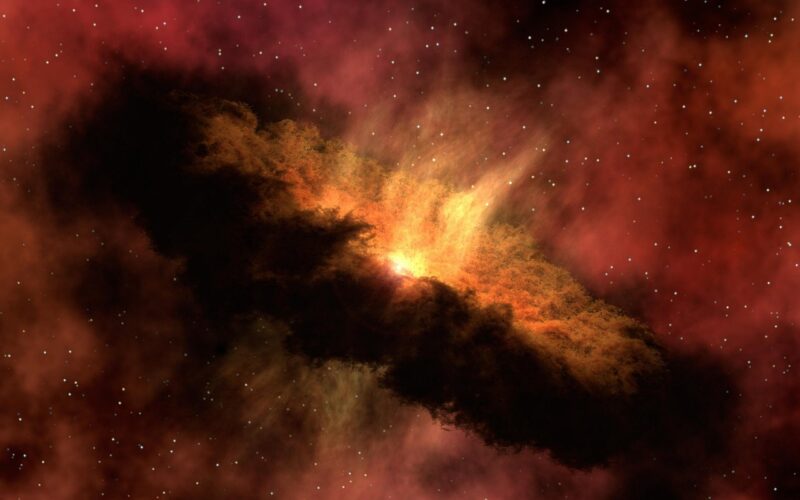The Most Bizarre Theories About the Universe That Still Baffle Scientists
November 17, 2024

The universe, with its vastness and complexity, has always intrigued humanity. For centuries, we have gazed up at the stars, pondering the mysteries of existence, time, and space. As our understanding of these cosmic puzzles has evolved, so too have the theories attempting to explain them. Some theories are widely accepted, while others are bizarre and controversial, challenging the very fabric of our understanding. In this article, we will delve into some of the most peculiar theories about the universe that continue to baffle scientists today.
1. The Multiverse Theory
One of the most perplexing ideas in modern physics is the Multiverse Theory, which posits that our universe is not the only one but rather one of many universes, possibly an infinite number. This theory springs from string theory and quantum mechanics, suggesting that there might be numerous universes that have different physical constants, laws, and even dimensions.
While the idea seems outlandish, it provides explanations for certain phenomena like dark energy and cosmic inflation. One version of the theory, called the “Many-Worlds Interpretation” of quantum mechanics, implies that every decision creates a new branch of reality, leading to entirely distinct universes where every conceivable outcome occurs.
However, the primary challenge of this theory lies in proving its existence. Currently, there are no experimental results that can definitively validate or invalidate the Multiverse Theory, leaving it in the realm of speculation.
2. The Simulation Hypothesis
What if our reality is merely an advanced simulation created by a higher intelligence? The Simulation Hypothesis proposes that what we perceive as the universe could be a sophisticated computer simulation. Philosophers and scientists alike, including tech moguls like Elon Musk, have considered this possibility, arguing that as technology advances, the creation of hyper-realistic simulations becomes increasingly feasible.
The idea draws from various philosophical perspectives, such as the existential musings of René Descartes and the more recent technological critiques of society. If this theory holds any weight, it raises profound questions about the nature of reality, consciousness, and our significance within it.
Despite its philosophical allure, the Simulation Hypothesis lacks empirical evidence. Critics argue it leads to a paradox: if we live in a simulation, then so would the creators of that simulation, thereby creating infinite layers of simulated realities.
3. Dark Matter and Dark Energy
Approximately 95% of the universe is composed of dark matter and dark energy—two entities that remain elusive and poorly understood. Dark matter does not emit, reflect, or absorb light, making it invisible and detectable only through its gravitational effects on visible matter. This mysterious substance is believed to hold galaxies together and explains the unexpected rotation speeds of galaxies.
On the other hand, dark energy is thought to be responsible for the observed acceleration of the universe’s expansion. However, its fundamental nature is yet to be understood. Some scientists propose that dark energy could be a cosmological constant, while others suggest it might be a dynamic field that evolves over time.
The existence of these two components reshapes our understanding of the universe, stoking debates about their implications on cosmology. Worst yet, despite extensive research, neither dark matter nor dark energy has been directly detected, prompting ongoing speculation about their true nature.
4. Time Travel and Temporal Paradoxes
The concept of time travel fascinates both scientists and science fiction enthusiasts. Theories in physics, particularly relativity, suggest that time is not a constant but a dimension that can be manipulated. However, the implications of time travel raise paradoxical questions, such as the famous “grandfather paradox”: if one were to travel back in time and prevent their grandfather from meeting their grandmother, would the time traveler be born?
Theories allowing for time travel often involve complicated constructs like wormholes or cosmic strings. Still, the external implications of these ideas remain hazy, as our understanding of causality, entropy, and spacetime constructs are far from complete. Moreover, several physicists argue that while time travel could be theoretically possible, it might be outright forbidden by the laws of physics.
5. The Holographic Principle
The Holographic Principle is a theory that suggests that all the information contained within a three-dimensional space can be represented as a two-dimensional surface, much like a hologram. Proposed by experts working in string theory and black hole physics, this idea challenges our perceptions of space and reality itself.
According to this principle, the universe might be a projection of information encoded on a distant 2D surface, leading to the notion that what we perceive as life is merely a holographic illusion. If true, the Holographic Principle could bridge the gap between quantum mechanics and general relativity.
Despite its conceptual appeal, the implications of this principle have yet to achieve broad acceptance among scientists, and its intricacies pose challenges for empirical validation.
6. Alien Life and the Fermi Paradox
Given the multitude of stars and potentially habitable planets in the universe, the question of extraterrestrial life looms large. Yet, we have yet to discover convincing evidence of intelligent civilizations, leading to the Fermi Paradox: if intelligent life is common in the universe, where is everyone?
Numerous theories attempt to explain this paradox, including the possibility that advanced civilizations self-destruct, remain undetectable, or choose to avoid contact with us. Furthermore, concepts like panpsychism suggest that consciousness might permeate the universe, allowing for forms of life we simply cannot comprehend.
The Fermi Paradox encapsulates the struggle to reconcile our expectations about the universe with our limited observational capabilities, continually motivating the search for extraterrestrial life.
Conclusion
The universe remains one of humanity’s most captivating mysteries, and the bizarre theories that arise from our quest for understanding only fuel our curiosity. From the Multiverse to the simulation hypothesis, these ideas challenge not only our scientific perspectives but also the very essence of reality, time, and existence.
As we continue to explore and scrutinize the cosmos, each new discovery uncovers more questions than answers. While some theories may never be empirically proven, their existence sparks critical discussions that enhance our understanding of the universe and our place within it. The journey toward cosmological discovery is indeed as fascinating as the mysteries it seeks to unravel.








